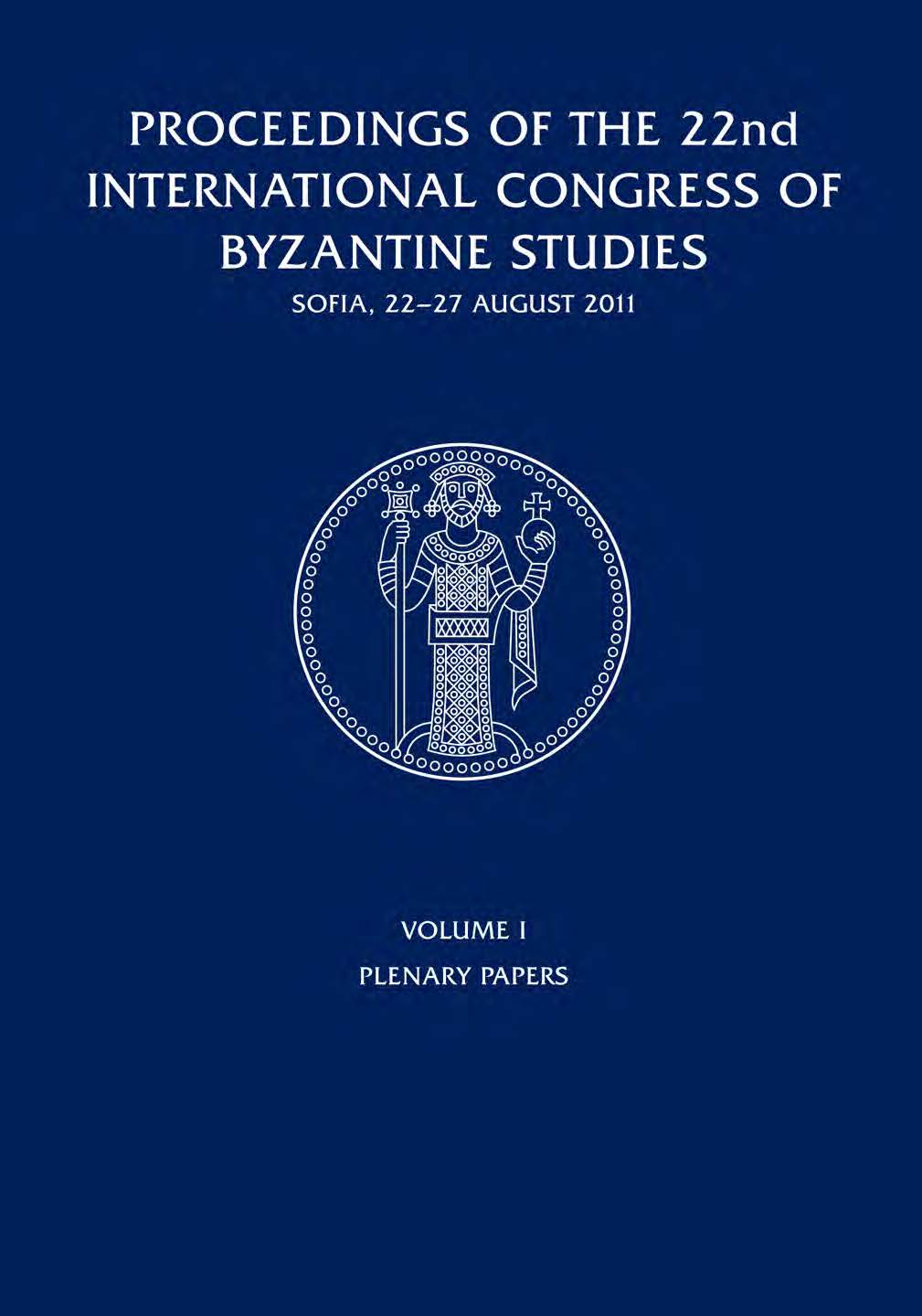
We kindly inform you that, as long as the subject affiliation of our 300.000+ articles is in progress, you might get unsufficient or no results on your third level or second level search. In this case, please broaden your search criteria.

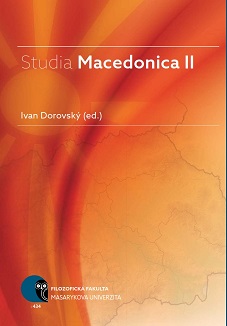
The author deals with the life and economic strategies of people inhabiting mountain regions of the Republic of Macedonia, during the second half of the 20th century and the beginning of the 21st century. The strategies can be studied either by means of analyses of economic behavior of an individual/a household or by research of socio-cultural aspects of human behaviour and motivation. The research of value systems became popular. The value system seems to be an impulse to the particular strategies. In addition to that potential strategies of individuals and households are defined by many other factors, e. g. current situation on the labour market, land ownership, capital or external intervention of the state policy. The strategies differ in particular regions depending on the local environment or a distance from the center. A case study from the village of Bitovo shows the present situation (2011, 2012) and goes back to the second half of the 20th century. Bitovo is situated in the region of Poreche in Western Macedonia and lies at 1200 m. a. s. l. In 2011 it had 43 inhabitants. The current occupation of local men was mostly woodcutter, wood transport and sheep breeding. The men procured a financial income of a household. Women were used to work as self-sufficient farmers and they procured a non-monetary income. After the World War II the village Bitovo had 360 inhabitants. It stands for the most common strategy of the villagers during the second half of the 20th and the beginning of the 21st century was emigration. The motivation for emigration was principally economic. We distinguish two agricultural streams of migration and two industrial ones. First there were the agricultural streams with motivation to get a land to Vojvodina (the towns of Kačarevo, Jabuka) and to the Pelagonia lowland (around Prilep, Macedonia). During the 70’s the villagers started to settle to cities (urbanization) to be employed in industry and to go to work to Germany (as gastarbeiters).
More...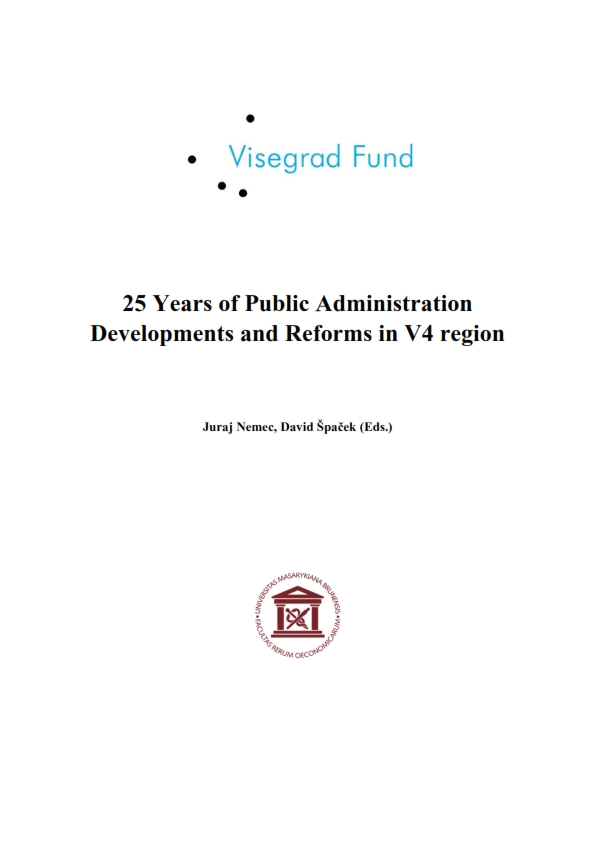
Fundamental political and economic changes have taken place in the Czech Republic in the past quarter of a century. It is a relatively long period of time, during which all areas of life of society have been radically transformed, with public administration being no exception. The significant milestone of the country’s history was marked by the events of November 1989. The political, legislative, and economic changes – in a word “dismantling” – of the socialist state and its transformation into a democratic state relying on the market economy also required transformation regarding the perception of its role, activities of executive apparatus and institutions, nature and quality of public administration employees, and effectiveness of their work. And it is a very challenging and prolonged transformation that is not always absolutely clear. By analyzing the public administration development during the period, we should point out the key moments of its transformation and allow critical assessment of individual steps of various reforms, both planned and implemented. This is the only way to determine the pros and cons of the existing development and to indicate the trends of going forward.
More...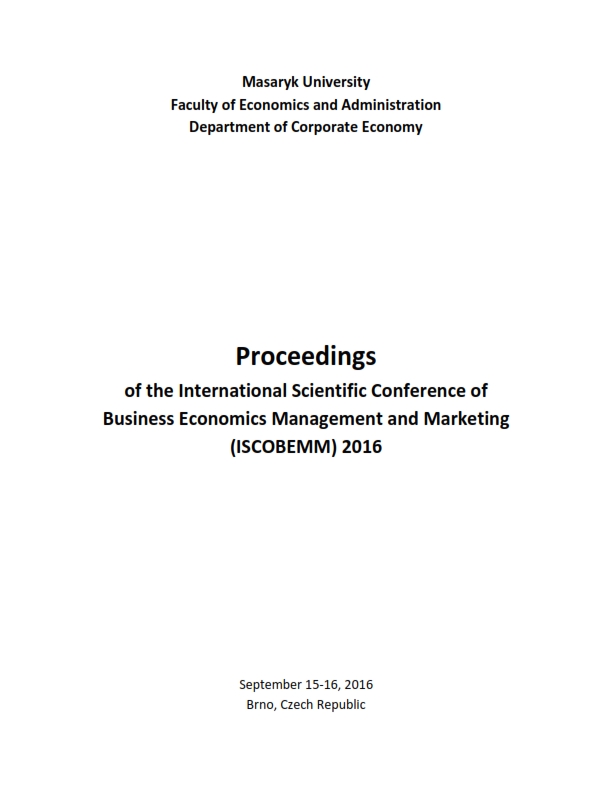
Social entrepreneurship is characterised by a high degree of creativity and innovation, not only in technical terms but also in relation to management-social aspects. Social entrepreneurship is a relatively young sector which is not legally addressed in the Czech Republic. Its development dates back to the 19th century but its main development comes in the second half of the 20th century. In the CR there is a missing government conception of social entrepreneurship and legislative definition of the social business which would direct the formation and development of social businesses in a long–term horizon.
More...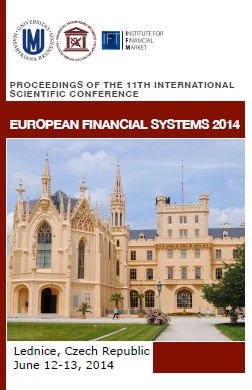
The price of government bonds reflects among other market confidence in governments' commitment towards sustainable fiscal policies. The aim of the paper is to examine the importance of fiscal fundamentals for sovereign risk spread in selected European Union member states in a period 1990-2012 and test if stronger fiscal discipline reduces sovereign risk premium. The empirical evidence is performed on unbalanced panel containing 15 EU countries and panel regression is a basic method of research.
More...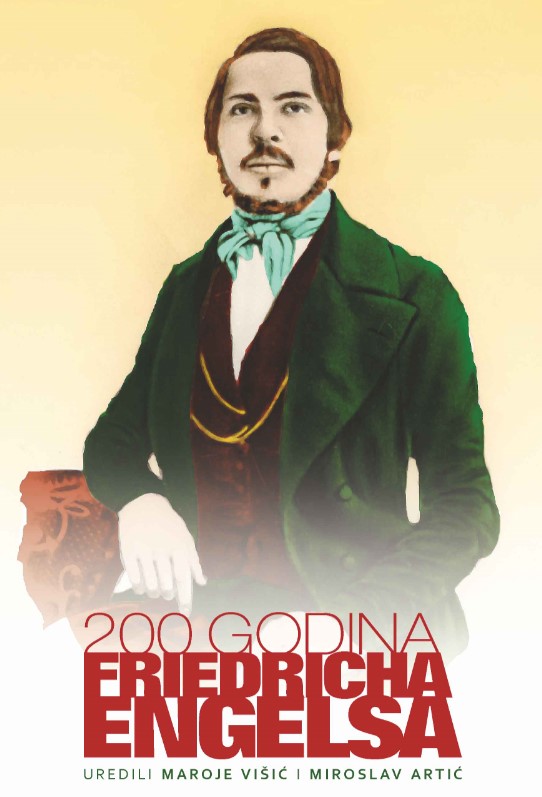
While K. Marx, when it is about agrarian and rural, mostly dealt with the questions of commercial agriculture, like land rent, work force, etc, his associate F. Engels focused on social position, fate and role of peasantry in (past and expected) revolutions. In this paper we give a review of Engels’s views on peasantry, with an analysis and a critique. With his descriptions of the social position of the German, the French and the Russian peasantry, and of rural commune as one of the traditional institutions of rural society, Engels contributed to sociology. His claims that peasantry must disappear and that it is not capable to protect and promote their own interests, exert a significant influence upon the political practice in the socialist societies of the XX century.
More...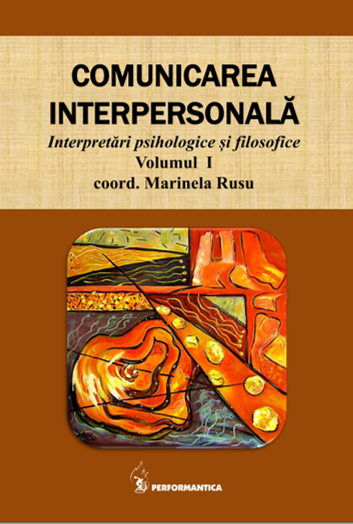
The connotations of the term individualism have been debated many time throughout history, giving it a wide range of meanings, more vague or more precise, depending on those who use it - historians, writers, anthropologists, philosophers of social sciences, politics or political theorists. Each gave it its own meaning and thus integrated it into their work. The promoters of individualism have as their ultimate goal the individual goals and desires, in other words, individualism is the opposite of holism, collectivism, totalitarianism, which support the community objectives of society. The last part of the twentieth century was the period when neoclassical market policies began to dominate the globe. This was due to two series of major events: the crisis of the welfare state and the fall of communism. The triumphalist spirit of this age, present in works such as Francis Fukuyama's "The End of History and the Last Man" was the New Spirit of the New Age. The term individualism was the one that best captured this spirit better than any other.
More...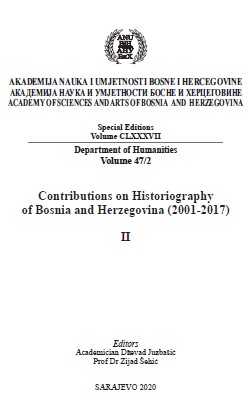
In the historiography on the Bihać region (Bosnian: Bihaćka Krajina) and Bosnia and Herzegovina, which refers to the history of the 20th century, in recent years there have been some changes in terms of interest of scientists and researchers on specific topics, as well as in scientific and methodological approach used in their processing. When it comes to topics of interest in scientific circles, from the Second World War to the 1990s, previous studies that emerged during that period mainly covered topics related to World War II and emphasized the role of this area in the Yugoslav war history and sociopolitical and cultural changes after the war. In the last nearly two decades, examining the recent historiographical literature, we can conclude that the Bihać area is partially represented in the literature whose broader thematic frameworks relate to the period of Austro-Hungarian rule in Bosnia and Herzegovina and treat social history such as urban development, trade, bey land holdings and military-political history from the occupation in 1878 to the end of World War I, as well as the original cartographic material. Although the Bihać area is not a narrow research topic in this case, it should be emphasized that its representation can be a very important avenue for future researchers, in the broad contextualization of microhistorical subjects, since they are works that certainly represent historiography characterized by an objective research orientation and professional analytical-interpretative approach. From the narrow frameworks for the Bihać region in the Austro-Hungarian period, we can conclude that the topics of education and culture dominate, while local history in other areas is rather neglected. From the interwar period we have several articles that have contributed to a closer acquaintance with the religious and cultural circumstances in the Cazin region (Bosnian: Cazinska Krajina), the way of life and the specifics of agrarian reform. For the period of the Second World War, two books have been singled out, whose authors treat unexplored thematic areas and go beyond the current scientific and methodological approach in the study of this topic, while in the socialist period two events have been singled out, The Cazin rebellion (Bosnian: Cazinska buna) and the Agrokomerc affair (Bosnian: Afera agrokomerc), which have attracted the attention of scientific and professional public as well as the participants who shared their memories. The Cazin rebellion has to this day maintained its attention in the historiographical research of Vera Kržišnik-Bukić, who has made an important contribution to the overall presentation of this event, while some authors and participants have recently updated some issues within the Cazin rebellion with the research of smaller scale and published memory.
More...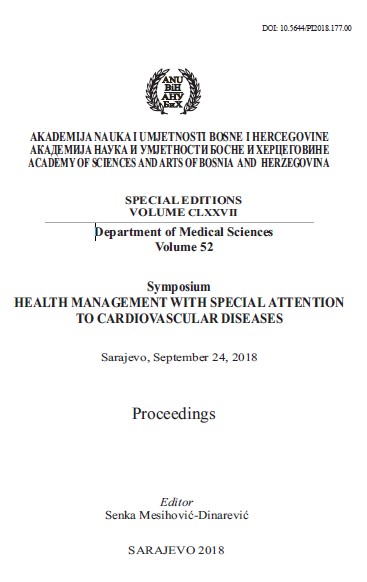
There is no doubt that the overall health of the population is the area of a special social concern of a state, hence, this concern is most often expressed through complex systems of healthcare insurance. Having in mind the fundamental social significance of the healthcare system, debates pertaining to its functioning and efficiency have been ubiquitously present all around the globe. The importance of scientific and practical research in the healthcare area are becoming particularly important in the unfavorable economic conditions as have been present in the most of the World’s countries during and after the 2007 economic crisis. Considering the severity of the crisis, many of the countries have been facing the need for a revision of their health systems in order to assure sustainability of their healthcare in newly arisen, adverse and uncertain financial reality. Additionally, although the healthcare systems can be grouped and attributed to a certain model, we must not neglect the fact that healthcare systems are different from state to state and that they are under a strong influence of history, tradition, political system, economy and national values of every state. Because of this, it has not been possible to offer a single set of universally efficient measures for tackling the crisis’ repercussions on healthcare systems. In this paper we analyze the responses implemented by European Union countries in the light of the most recent economic crisis, deemed unprecedented in the Union since its establishment.
More...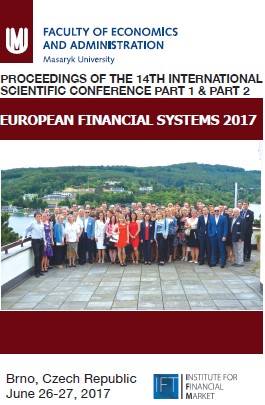
The yield curve – specifically the spread between the long term and the short term interest rates is a valuable forecasting tool. It is simple to use and significantly outperforms other financial and macroeconomic indicators in predicting recessions one to six quarters ahead. A rise in the short rate tends to flatten the yield curve as well as to slow down real growth the near term. The relationship between the spread and future GDP activity was proved already before. For better predictions it is good to use other overtaking indicators of economic activity as the development of the stock market. This paper aims to analyze the dependence between the slope of the yield curve, development of the stock market and an economic activity of selected countries between the years 2000 and 2016. The selected countries are the Czech Republic, Hungary, Poland and Slovakia. The natural and probably the most popular measure of economic growth is GDP growth, taken quarterly. We have found out that the bond spreads and stock market development might be used for predicting of the future economic activity, the best lags of bond spreads are 2, 4 or 5 quarters. These findings might be beneficial for investors and provide further evidence of the potential usefulness of the yield curve spreads as indicators of the future economic activity.
More...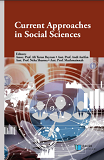
The aim of study is to analyze the İsmet İnönü era in Turkey during his tenure while concentrating on the challenges and shortcomings of democracy. The study will focus on various dimensions, including political restrictions, limitations on freedom of expression, one-party rule, electoral systems, socio-cultural factors as well as economic policies in order to offer a detailed examination of the complex dynamics which shaped the democratic landscape of Turkey of the time. Studying the mentioned dimensions is expected to uncover the factors which led to the inadequacy of democracy during the İnönü era and eventually to evaluate their implications for Turkey's democratic development, which on the one hand encompasses the succession from Mustafa Kemal Atatürk and the Republican People's Party's (CHP) dominant role and on the other hand emphasizes the consolidation of power and the challenges to political representation. Particularly, the analysis of electoral practices can provide insights into the limitations of democratic processes, such as restrictive laws, voter intimidation, and limited political pluralism. Moreover, the study will examine the impact of these challenges on democratic decision-making which would include but not limited to the centralization of power, the marginalization of opposition voices and their meanings for citizen participation. The study will also try to evaluate the restrictions on freedom of speech and the media landscape, discussing the limitations imposed on critical voices, media control, and its consequences on public discourse and democratic participation. In addition to these, the study is expected to assess the socio-cultural dynamics which would focus on İnönü's modernization policies and their impact on social transformation. The study will explore the tensions between traditional values and cultural constraints, too. This will be carried out by highlighting the challenges faced by less represented groups and the inclusiveness of the political system. The economic policies of the İnönü era, including the economic vision and development strategies will be scrutinized, with particular attention given to the socio-economic disparities and their effects on democratic participation as well as political power dynamics. Furthermore, the study will attempt to examine the international relations and foreign policy approach of İsmet İnönü. This examination will be through the consideration of the implications for democracy and Turkey's international standing. The influence of external factors on democracy in Turkey during the mentioned timeline will also be assessed. Finally, the study will be concluded with the evaluation of the legacy of the İnönü’s era, weighing the democratic gains and losses while drawing lessons for Turkey's democratic development and considering the implications for the post-İnönü era. This comprehensive analysis is expected to contribute to a nuanced understanding of the İsmet İnönü era's impact on democracy in Turkey which could highlight the complexities and challenges faced during his tenure. The critical examination of the various dimensions, the study will provide valuable insights for scholars, policymakers as well as for any expert who is interested in Turkey's democratic history and in the ongoing democratic journey.
More...
The main purpose of this study is to examine the current energy economics literature in Türkiye by considering the role of innovations, foreign direct investments, economic growth and trade openness in the function of carbon emissions. In the study using 1994–2020 data, vector error correction model (VECM) and ARDL bounds test methods were used to examine the effects of innovation, trade openness, foreign direct investment, per capita GDP on CO2 emissions. Accordingly, it was concluded that trade openness and GDP per capita are among the variables affecting CO2 emissions in Türkiye. GDP per capita and trade openness affect carbon emissions positively in Türkiye. On the other hand, the relationship between FDI, innovation coefficient and CO2 emission coefficient is not significant at the 5% level. The sign of the coefficient of the predicted foreign direct investment and innovation variable is positive. In line with the findings, it primarily targets the energy consumption model, since economic growth is the primary driving force of the country's economy. Policy makers should turn to practices that encourage the use of renewable energy sources rather than the use of fossil fuels. While transitioning to renewable energy sources, R&D units in the country can be used for the development of renewable energy solutions.
More...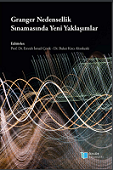
In this study, it was aimed to examine the causality relationship between female suicide rate, fertility rate, female unemployment rate, inflation and gross domestic product between 2000-2022 in Turkey. In the examination of stationarity, Augmented Dickey and Fuller (ADF), Phillips-Perron (PP), Kwiatkowsky-Philips-Schmidt-Shin (KPSS) and Dickey-Fuller generalized least squares, Zivot and Andrews one structural break test were used and Granger causality test was conducted to investigate the causality relationship. According to the results of ADF, PP and KPSS unit root tests, it was determined that all series were stationary at the first difference. A bi-directional causality relationship was found between female suicide rate and fertility rate, and unidirectional causality relationship was found from female unemployment rate to female suicide rate and fertility rate. On the other hand; it has been determined that female suicide rate, female unemployment rate and GDP per capita are the causes of inflation and there is a unidirectional causality relationship from these variables to inflation. According to Granger causality test results, there is no Granger causality relationship between female suicide rate and GDP per capita.
More...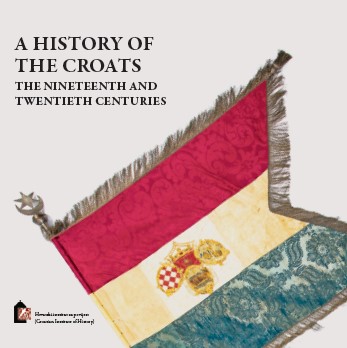
Napoleon’s conquests tailored a new map of Europe, and after his defeat a new European order had to be created. This was achieved at the Congress of Vienna, which lasted from September 1814 to June 1815. It was attended by as many as 64 delegations from various European countries, led mostly by foreign ministers. The most prominent participants were the foreign ministers of the European superpowers of Great Britain, Prussia, France, and the Habsburg Monarchy, as well as the Russian Minister of State. One of the key figures guiding the decisions of the Congress was the Austrian Minister of Foreign Affairs, Prince Klemens Lothar Wenzel Metternich. The main goals of the Congress were to restore rulers and states on the principle of legitimacy where possible, rewarding the victors, and to ensure peace. All states that had contributed to Napoleon’s final defeat made territorial gains. At the Congress of Vienna, the Habsburg Monarchy (Austrian Empire) confirmed its rule over the Lombard-Venetian Kingdom, and the Habsburg dynasty maintained its influence in other Italian states through its side branches. Dalmatia and the Croatian regions south of the Sava, and the Slovene provinces that had been under Napoleon’s rule, were restored to the Monarchy.
More...
The unstable economic situation with frequent financial crises in developed European countries, years of crop failure, and famine among the lower classes, a widespread dissatisfaction with the political situation, the strengthening of national movements, and the spread of liberal ideas created fertile ground for a new wave of unrests in Europe. The first revolutionary sparks ignited in January 1848 in Palermo, and in February in Paris. In the following weeks, they escalated into a revolutionary fire that engulfed much of Europe. The revolutionary turmoil was especially strong in France, the German and Italian lands, and in the Austrian Empire. Different social strata took part in the revolutionary movements, and their core consisted of the citizenry, craftsmen and merchants, workers and peasants, students, and in some places the nobility (for example, the petty and middle nobility in Hungary). Therefore, their goals were also different. Nevertheless, in most countries the main goals of revolutionary movements imbued with liberal and national spirit were the enactment of a constitution (except in France, which had one), i.e. the establishment of a constitutional monarchy, electoral reforms, expansion of the suffrage, abolition of the feudal order (in the countries east of the Elbe, which still had it), introduction of civil rights and freedoms, and creation of unified nation-states.
More...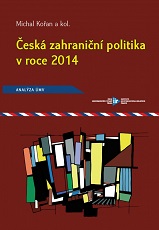
Po dlouholetých politických a institucionálních turbulencích bylo v agendě podpory vnějších ekonomických vztahů (VEV) už v roce 2013 zaznamenáno významné uklidnění. Přispěla k němu jednak existence základní programové báze z let 2011–20121 a jednak aktivita Rusnokovy vlády, která začala urovnávat spory mezi ministerstvem zahraničních věcí (MZV) a ministerstvem průmyslu a obchodu (MPO) ohledně zastupování ekonomických zájmů ČR v bilaterálních vztazích s ostatními zeměmi. Vzhledem k přechodnému charakteru Rusnokova kabinetu se očekávalo, že uklidnění vztahů mezi ministerstvy definitivně potvrdí až nová vláda sestavovaná na přelomu let 2013 a 2014. Té zůstalo k řešení i několik dalších souvisejících otázek, z dlouhodobějších zejména snížení exportní závislosti ČR na vnitřním trhu EU a slučování agentur CzechTrade a CzechInvest zahájené ještě za Nečasovy vlády z iniciativy MPO v čele s ministrem Martinem Kubou (ODS).
More...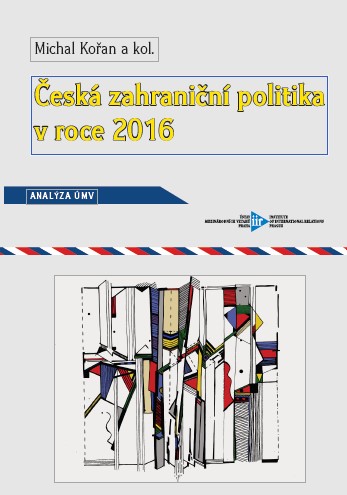
V roce 2016, stejně jako v několika předchozích letech, patřila oblast podpory vnějších ekonomických vztahů (VEV) ke stabilizovaným součástem česke zahraniční politiky. Trend k urovnání neshod mezi klíčovými institucemi, který v teto oblasti za-počala již Rusnokova vláda, se Sobotkovu kabinetu podařilo dále posílit. Patrná tak byla zvýšená snaha o aktivizaci stěžejních ministerstev i dalších zainteresovaných subjektů a tež úsilí o koordinaci a odstranění duplicit v jejich činnosti, resp. o vytvoření co nejtransparentnějšího a uživatelsky jednoducheho systemu služeb pro firmy zapojene do mezinárodního obchodu a dalších mezinárodních podnikatelských aktivit.
More...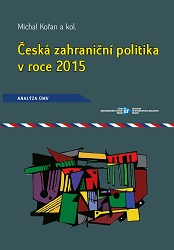
Rok 2015 byl v pořadí již třetím rokem, kdy oblast podpory vnějších ekonomických vztahů ČR (VEV) patřila spíše ke klidnějším součástem české zahraniční politiky. K tomuto stavu bezesporu přispěla stabilizace institucionální a programové základny, která započala už za Rusnokova úřednického kabinetu a byla dále podporována Sobotkovou vládou. Zároveň se sem promítalo další zvyšování aktivity klíčových státních institucí i snaha o větší koordinaci jejich činnosti. Navzdory některým nepříznivým tendencím v mezinárodním prostředí se dařilo dobře i českému exportu. Uspokojivý byl rovněž příliv přímých zahraničních investic.
More...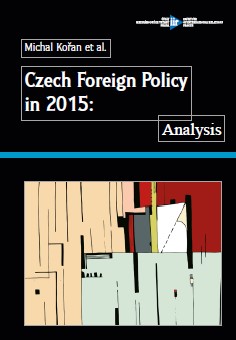
The year 2015 was the third consecutive year when the area of support of external economic relations of the Czech Republic (VEV) belonged to fairly peaceful parts of Czech foreign policy. This situation was facilitated, without a doubt, by stabilization of the institutional and programme base, which started already during Rusnok’s care-taker government and it was then supported by Sobotka’s government. At the same time, further increasing of activities of key state institutions as well as efforts for greater co-ordination of their activities were reflected in it. Despite some unfavorable tendencies in the international environment, Czech export did well too. The in-flux of direct foreign investments was also satisfactory.
More...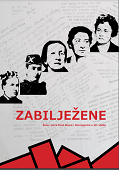
Ovo poglavlje se kontekstualno osvrće na društvene, ekonomske, političke i kulturne prilike, te svakodnevni život u Socijalističkoj Republici Bosni i Hercegovini (SRBiH), odnosno Socijalističkoj Federativnoj Republici Jugoslaviji (SFRJ) po završetku Drugog svjetskog rata pa do kraja osamdesetih godina, sa posebnim naglaskom na žensko pitanje i položaj žena. Pažnja će se posvetiti ranim socijalističkim naporima i zakonodavnim mjerama za ravnopravnost spolova i emancipaciju žena, kao i cjelokupnom društvenom napretku za vrijeme socijalističke vlasti. Pitanja pozitivnih i negativnih implikacija ovog napretka po život žena propitivat će se iz feminističke perspektive. Za čim su žene žudjele, čemu su stremile, čemu se nadale i za šta se borile, da li su uspjele dosegnuti ravnopravnost sa muškarcima u periodu bratstva i jedinstva – samo su neka od pitanja kojima će se posvetiti posebna pažnja. Kako je pitanje obrazovanja žena bilo posebno važno u ovom periodu, ovoj temi će se posvetiti posebna pažnja, kao i doprinosu žena nauci. Pregled prilika kad su kultura i umjetnost u pitanju, posebno književnost, slikarstvo, pozorište i film daje se kroz predstavljanje rada određenih žena u ovim oblastima. Napominjemo da su i u ovom poglavlju spomenute samo neke od žena koje su se svojim djelima, radom i ostvarenjima istakle u toku socijalističkog perioda BiH.
More...